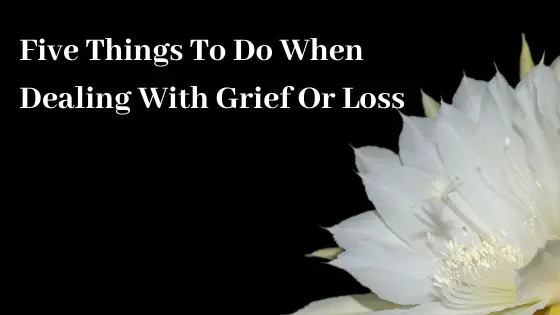
Losing a loved one is one of the biggest tests that life can present to you. It is a test the Prophets and the righteous endured many times and it is a test that all of us will inevitably go through. The loss of a loved one is a pain like no other. Those grieving can experience emotions ranging from shock, numbness, confusion and questions to regret, hopelessness, sadness, emptiness and fear.
Many find it hard to deal with the whirlwind of emotions that come with such a loss. Some might find themselves slipping into depression and hopelessness, while others might sweep the emotions under the rug without addressing them or dealing with them.
Our deen teaches us a balanced approach to responding to grief and loss as well as giving us hope that the door is not closed forever. The parting is a temporary parting and we can still benefit our loved ones through acts of Sadaqa Jariya and dua.
Grief can be paralyzing and crippling. In the haze that often accompanies the loss of a loved one, it is often difficult to figure out how to deal with the grief and to find productive avenues to channelize our emotions. Here are five things you can do when faced with the heartbreaking calamity of losing a loved one:
1. Hold on to Sabr (Patience) and say “Indeed we belong to Allah, and indeed to Him we will return”:
Sabr (Pateince) is something everyone who comes to give you condolence will always advise or wish for you. Sometimes, unfortunately, the word tends to be used in the wrong context while trying to stop one from crying or expressing their emotions or feelings. However, in Islam, sabr (patience) does not mean that you do not cry or that you do not express your emotions. In Islam, sabr is the beautiful balance of feeling the sadness from the loss but accepting and being content with the decree of Allah (swt). Sabr does not mean that you do not cry or that you do not feel sad at the loss of your loved one, sabr means you do not act in a way that is displeasing to Allah (swt).

In the Quran, Allah (swt) mentions sabr in the context of losing loved ones in these words:
“And We will surely test you with something of fear and hunger and a loss of wealth and lives and fruits, but give good tidings to the patient, who, when disaster strikes them, say, “Indeed we belong to Allah, and indeed to Him we will return.” Those are the ones upon whom are blessings from their Lord and mercy. And it is those who are the [rightly] guided.”
Sabr here is linked to the acceptance of the decree of Allah and the realization that we all have to return to Allah which is materialized in the utterance of these words from the mouth of a believer: “Indeed we belong to Allah, and indeed to Him we will return.”
This does not mean that one does not cry or feel sad or miss their loved one. Those are natural emotions. It just means we accept everything belongs to Allah and everything returns to Him. When the Prophet Muhammad (saw) was crying when he lost his son Ibrahim, some of his companions showed surprise that he was crying and he said: “The eyes are shedding tears and the heart is grieved, and we will not say except what pleases our Lord, O Ibrahim! Indeed we are grieved by your separation.” (Sahih Bukhari)
2. Make Dua (Prayer) for your loved one:
One of the best gifts one can give to their loved ones after their passing is sincere dua. Islam teaches us that the door is not closed forever. We are given hope that we can still meet our loved ones again in the Hereafter, that we can still benefit them with duas and acts of charity.
The best duas that someone who has passed away can receive are duas from their children. The Prophet Muhammad (saw) said:
“A man’s status will be raised in Paradise and he will ask, ‘How did I get here?’ He will be told, ‘By your son’s dua’s (prayers) for forgiveness for you.” (Ibn Majah)
Some of the duas the Prophet Muhammad (saw) made for the deceased in funeral prayers have beautiful wordings that we can make every time we remember our loved one who has passed away.
3. Forgive them and Tie Lose Ends:
We all have misunderstandings and grudges. Forgiving the deceased for any wrong they may have done to you or anything they owed you is also one of the best gifts you can give to them. Another way we can help the loved ones who have passed away is to hasten in dealing with their debts and the rights they had due upon others and Allah. This includes paying off any loans, payments due and any zakah or fasts that they had to make up or kaffara (expiation) for them. The sunnah encourages hastening the paying of debts as soon as one can even before the offering of the funeral prayer. Proper and just distribution of their inheritance according to the shariah must also be hastened. The intention behind hastening dealing with the debts and rights they had due upon others is to make ease for them in the hereafter and to ease their transition into the next world.
4. Mention them in good words:
One of the ways we can benefit our deceased loved ones is to mention their good qualities and remember them in good words.
Narrated Anas bin Malik (ra): “A funeral procession passed and the people praised the deceased. The Prophet (saw) said, “It has been affirmed to him.” Then another funeral procession passed and the people spoke badly of the deceased. The Prophet (saw) said, “It has been affirmed to him”. Umar bin Al-Khattab asked, “What has been affirmed?” He replied, “You praised this, so Paradise has been affirmed to him; and you spoke badly of this, so Hell has been affirmed to him. You people are Allah’s witnesses on earth.” (Bukhari)
Ibn Umar reported: The Messenger of Allah (saw) said, “Mention what is good about your dead, and refrain from speaking about their evil.” (Tirmidhi)
The Prophet (saw) said, “When your companion dies, leave him alone without speaking badly about him.” (Bukhari)
5. Give Sadaqa (Charity) on their behalf:
Giving Sadaqa (charity) on behalf of your loved one is one of the best ways you can honor them after they have made the transition to their next life.
On the authority of Abu Hurairah (ra) that the Messenger of Allah (saw) said, ‘When a person dies, his deeds come to an end except for three: Sadaqah Jariyah (a continuous charity), or knowledge from which benefit is gained, or a righteous child who prays for him’. (Muslim)
On the authority of Sa‘d bin ’Ubadah (ra) that he said, ‘O Messenger of Allah! Umm (mother of) Sa‘d has died, so which charity is best?’ He (saw) replied, “Water (is best).” He said, ‘So he (ra) dug a well and said, “This (well) is for Umm Sa‘d”’. (Abu Dawud)
Contributing on behalf of the deceased to beneficial causes like the digging of a well, the provision of clean water in remote areas, the building of a masjid, the propagation of Islamic knowledge, sponsoring an orphan or helping those in need are all examples of Sadaqa that will benefit them in the next life.
May Allah ease your pain and may you meet your loved ones in the Hereafter with a mountain of good deeds of your own and ones that you helped build up for them as well.
